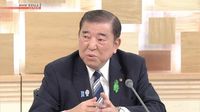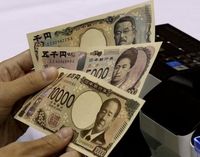On April 21, 2025, the exchange rate of the Japanese Yen against the Vietnamese Dong (VND) was a significant topic of discussion among financial institutions and investors alike. The rates varied across multiple banks in Vietnam, reflecting the current economic climate and the ongoing negotiations between Japan and the United States regarding trade and currency policies.
According to a report by Cong Thuong, Vietcombank listed the buying rate for the Japanese Yen at 175.83 VND/JPY and the selling rate at 187 VND/JPY. Vietinbank's rates were slightly higher, with a buying rate of 178.10 VND/JPY and a selling rate of 187.80 VND/JPY. Meanwhile, BIDV offered a buying rate of 178.50 VND/JPY and a selling rate of 186.81 VND/JPY. Agribank and Eximbank also provided competitive rates, with Agribank at 177.71 VND/JPY for buying and 185.88 VND/JPY for selling, while Eximbank's rates were 179.19 VND/JPY for buying and 185.36 VND/JPY for selling.
As the day progressed, Sacombank and Techcombank reported buying rates of 179.20 VND/JPY and 175.43 VND/JPY respectively, with selling rates of 186.25 VND/JPY and 188.14 VND/JPY. The National Commercial Bank (NCB) had a buying rate of 176.41 VND/JPY and a selling rate of 186.79 VND/JPY, while HSBC offered a buying rate of 177.27 VND/JPY and a selling rate of 185.09 VND/JPY. In the black market, the exchange rate for the Yen was reported at 182.07 VND/JPY for buying and 183.27 VND/JPY for selling.
This fluctuation in exchange rates comes at a time when Japanese Finance Minister Shunichi Suzuki emphasized the importance of stable currency rates for businesses. In a statement made on April 20, 2025, Suzuki acknowledged that opinions are divided regarding the depreciation of the Yen and its impact on households. He noted, "Confidence stems from cooperation as well as from economic and fiscal affairs." This sentiment underscores the delicate balance Japan must maintain in its economic dealings, particularly with the U.S.
During a recent conversation with U.S. President Donald Trump, Suzuki discussed the broader economic landscape and expressed Japan's commitment to carefully examining the implications of high raw material prices. The dialogue between the two leaders reflects ongoing efforts to address trade imbalances, particularly concerning tariffs on Japanese imports.
Prime Minister Shigeru Ishiba also weighed in on the matter, stating that Japan and the U.S. should seek solutions to the ongoing tariff issues that align with both nations' interests. In a discussion aired on NHK, Ishiba highlighted concerns over the low presence of American cars on Japanese roads, which he believes worries many Americans about the safety standards of Japanese vehicles. He asserted that Japan must also consider the safety of its consumers and that any discussions regarding tariffs should not compromise food safety standards.
As the G20 meeting approaches on April 22, 2025, the topic of currency exchange rates is expected to be a focal point of discussion between Japanese and U.S. finance ministers. Experts suggest that if the U.S. continues to push for a stronger Yen, it could potentially lead to a rate drop to 130 Yen per dollar. However, many analysts believe that Japan's strong economy, political stability, and solid liquidity in financial markets make the Yen a safe haven asset.
The cultural nuances surrounding currency exchange and financial practices in Japan and Vietnam also play a role in these discussions. For instance, the tradition of gifting money in envelopes during weddings in Japan, where friends contribute around 30,000 Yen and family members around 50,800 Yen, showcases the importance of financial support within social structures. This cultural aspect highlights how monetary values are deeply intertwined with personal relationships and societal norms.
In Vietnam, various foreign currency exchange shops in cities like Hanoi and Ho Chi Minh City have become popular spots for locals looking to trade currencies. Shops such as Quoc Trinh Ha Trung and Minh Thu offer competitive rates for exchanging Yen, reflecting the growing interest in Japanese currency as a stable option amidst fluctuating rates.
As the economic landscape continues to evolve, both Japan and Vietnam must navigate these complexities carefully. The upcoming G20 meeting presents an opportunity for both nations to address their concerns and collaborate on solutions that benefit their respective economies. With the Japanese Yen being a key player in international trade, its stability will be crucial for businesses and consumers alike.
In summary, the exchange rate of the Japanese Yen in Vietnam on April 21, 2025, reveals not only the financial dynamics at play but also the broader implications of international relations and cultural practices. As both countries work towards a common ground on trade and currency issues, the importance of cooperation and understanding cannot be overstated.






